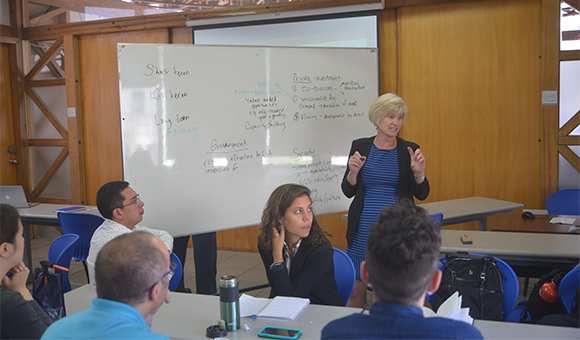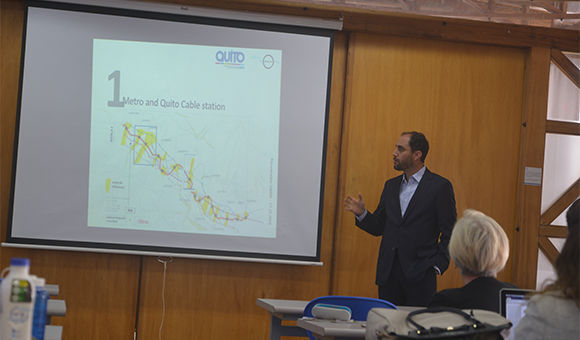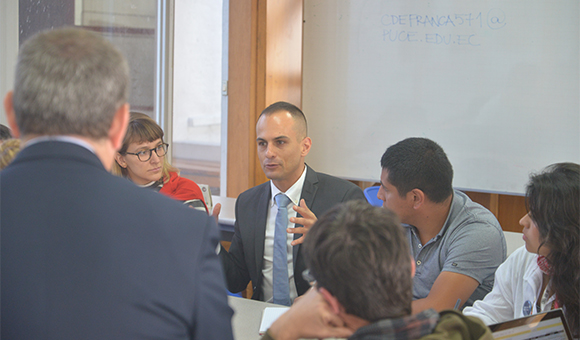Yale School of Management United States
Global Network students kicked off their week in Quito focused on urban resiliency on October 17 by meeting with classmates and non-governmental organizations with expertise on their projects. The work includes developing business plans and models for transit projects, enticing residents to return to the city’s historic center, and two environmental projects concerning natural resources.

David Jacome Petit, the chief resiliency officer for Quito, provided an overview of the challenges to the students and briefed them on the city’s resilience plans. The projects that the students will focus on throughout the week are some of the most-pressing issues facing the city, he said, requiring a multidisciplinary approach and an ability to navigate across sectors.

“We believe here in Quito that the work you will be doing for us is a resource. We need to consider what roles the financial and real estate sectors should play,” Petit said. “How do we protect our natural environment, while building economic development? We need to find those options, and that’s what we are excited for you to look at.”

In a first for Global Network Week, students have been working together virtually for several weeks ahead of their trip to Quito to prepare research and identify possible solutions for Quito, in coordination with the Rockefeller Foundation’s 100 Resilient Cities program. The week also coincides with Habitat III, the United Nations Conference on Housing and Sustainable Urban Development.
Andrew Salkin, a vice president with the 100 Resilient Cities program, told students that the week is an opportunity to build skills around working across cultures and governments, which are critical for leaders seeking to tackle big problems.
“What you are doing is looking at real-life issues and connecting them to the best science and policies available,” Salkin said. “That’s why the [Global Network] is exciting for us: ultimately the thinking you will do here will become second nature and shape your work.”
Students will visit the sites throughout the week and attend side events of their choosing at the Habitat III conference before presenting their solutions to a panel of experts on Friday. The panel will select two overall winners.
